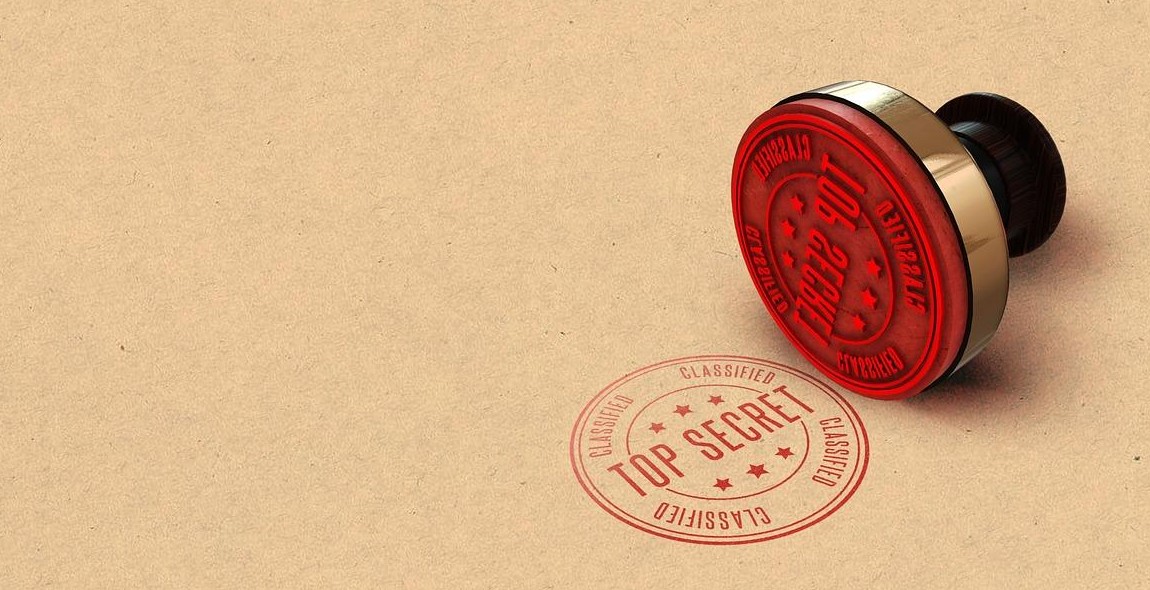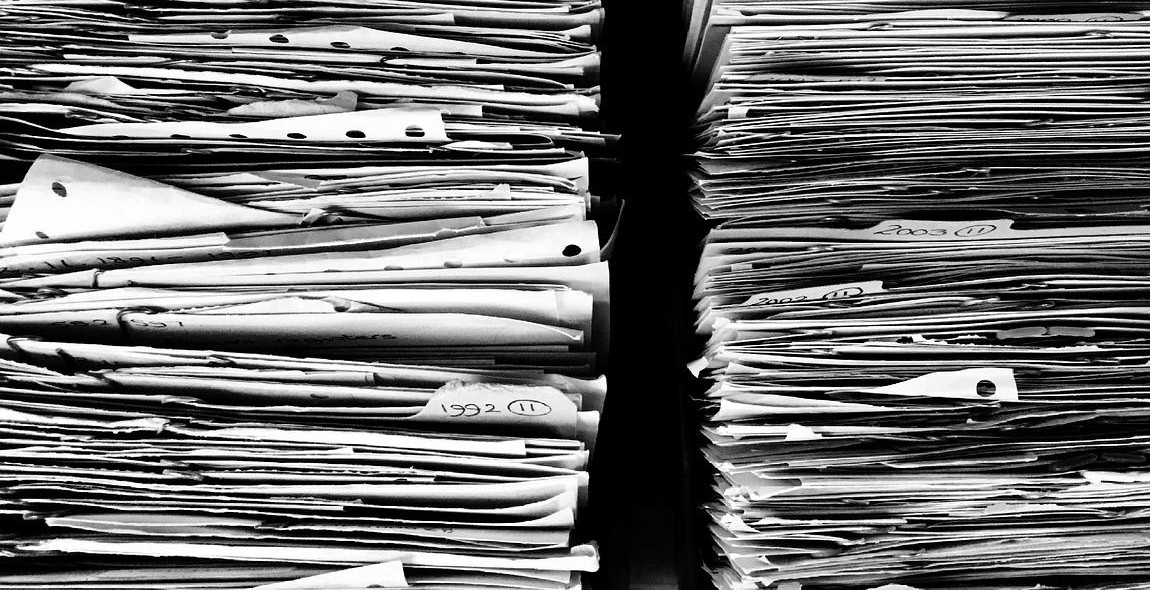How to Organize Important Documents and Personal Records: Tips for Easy Access
As a professional writer and content creator with years of experience, I have come across many people who struggle with organizing their important documents and personal records. Whether it’s due to lack of time, knowledge, or simply procrastination, the consequences of disorganized paperwork can be severe.
From misplaced bills to lost passports, disorganized records can cause unnecessary stress and anxiety. However, with a few simple tips and tricks, it’s possible to get your paperwork in order and keep it that way.
Why is it important to organize important documents and personal records?
Organizing important documents and personal records is crucial for several reasons. Firstly, it helps you keep track of your financial and legal obligations, such as paying bills and filing taxes. Secondly, it ensures that you have easy access to important documents when you need them, such as your passport or birth certificate. Lastly, it can save you time and money by avoiding late fees, penalties, and the need to replace lost documents.
What are the best ways to organize important documents and personal records?
There are several effective ways to organize important documents and personal records, including:
- Creating a filing system
- Using digital storage
- Maintaining a calendar
- Regularly purging unnecessary documents
By implementing these tips, you can ensure that your important documents and personal records are organized and easily accessible.
Why Organizing Important Documents is Important
As someone who has experienced the stress and anxiety of not being able to find an important document when I need it, I can attest to the importance of organizing personal records. Whether it’s a birth certificate, marriage license, or tax return, having all of your important documents in one place and easily accessible can save you a lot of headaches in the long run.
Avoiding Stress and Anxiety
One of the biggest benefits of organizing important documents is avoiding stress and anxiety. When you know exactly where to find a document, you don’t have to waste time searching through piles of papers or frantically tearing apart your home or office looking for it. This can be especially important in emergency situations, such as needing to provide medical information for yourself or a loved one.
Saving Time and Money
Another benefit of organizing personal records is saving time and money. When you have all of your important documents in one place, you can easily access them when you need them, without having to waste time searching or requesting duplicates. This can also save you money in the long run, as you won’t have to pay fees for replacement documents or incur late fees for missing deadlines.
Overall, organizing important documents and personal records is an essential task that can help you avoid stress and anxiety, save time and money, and ensure that you have everything you need when you need it. In the next section, we’ll explore some tips and strategies for organizing your personal records in a way that works best for you.

What Documents to Organize
Organizing your important documents and personal records can be a daunting task, but it is essential for easy access and peace of mind. Here are the four main categories of documents you should focus on:
Personal Identification Documents
These are documents that prove your identity and are necessary for various transactions. You should keep them in a safe and secure place, such as a locked filing cabinet or a fireproof safe. Here are some examples:
- Birth certificate
- Passport
- Driver’s license
- Social security card
Financial Documents
These are documents related to your finances, such as bank accounts, investments, and taxes. You should keep them organized and up-to-date to ensure you are on top of your financial situation. Here are some examples:
- Bank statements
- Credit card statements
- Investment statements
- Tax returns
Legal Documents
These are documents related to legal matters, such as contracts, wills, and deeds. You should keep them in a safe and secure place and make sure they are up-to-date. Here are some examples:
- Will and trust documents
- Power of attorney documents
- Property deeds
- Contracts and agreements
Medical Documents
These are documents related to your health and medical history. You should keep them organized and up-to-date to ensure you receive proper medical care. Here are some examples:
- Medical records
- Prescriptions
- Health insurance information
- Advance directive documents
| Document Type | Examples |
|---|---|
| Personal Identification | Birth certificate, passport, driver’s license, social security card |
| Financial | Bank statements, credit card statements, investment statements, tax returns |
| Legal | Will and trust documents, power of attorney documents, property deeds, contracts and agreements |
| Medical | Medical records, prescriptions, health insurance information, advance directive documents |
How to Organize Important Documents: Tips for Easy Access
Organizing important documents is crucial for easy access and retrieval. It helps you stay on top of your finances, legal matters, and personal records. Here are some tips on how to organize your important documents:
Create a Filing System
A filing system is one of the most effective ways to organize your important documents. Start by sorting your documents into categories, such as financial records, legal documents, medical records, and personal records. Then, create folders for each category and label them accordingly. You can use a filing cabinet or a file box to store your folders.
Tips:
- Keep your filing system simple and easy to use.
- Make sure to label your folders clearly.
- Keep your most important documents in a safe or a secure location.
Use Digital Storage
Digital storage is a great way to keep your important documents organized and easily accessible. You can use cloud storage services like Google Drive, Dropbox, or iCloud to store your documents. This way, you can access your documents from anywhere with an internet connection. Make sure to back up your files regularly to avoid losing important information.
Tips:
- Use a scanner to digitize your paper documents.
- Organize your digital files into folders and label them accordingly.
- Protect your digital files with strong passwords.
Get Rid of Unnecessary Documents
Getting rid of unnecessary documents can help you declutter your space and make it easier to find the important ones. Go through your documents and get rid of anything that’s outdated, irrelevant, or no longer needed. Shred any documents that contain personal information to protect your privacy.
Tips:
- Keep a shredder handy.
- Don’t hold onto documents for longer than necessary.
- Make sure to dispose of your documents properly.
Update Your Records Regularly
Updating your records regularly is important to keep them accurate and up-to-date. Make sure to add new documents to your filing system or digital storage as soon as you receive them. Review your documents periodically to ensure that they’re still relevant and accurate.
Tips:
- Set a reminder to review your documents periodically.
- Update your records as soon as possible.
- Make sure to keep your contact information up-to-date.
| Category | Examples |
| Financial Records | Bank statements, tax returns, investment records |
| Legal Documents | Wills, trusts, power of attorney, contracts |
| Medical Records | Medical history, prescriptions, insurance information |
| Personal Records | Birth certificate, passport, social security card |

Tips for Easy Access
Organizing your important documents and personal records can be a daunting task. However, with these tips, you can make the process easier and ensure that you have easy access to your documents when you need them.
Keep Important Documents Safe
Important documents such as birth certificates, passports, and social security cards should be kept in a safe and secure place. Consider investing in a fireproof safe or a safety deposit box at your bank. This will ensure that your important documents are protected from theft, fire, or other natural disasters.
Make Copies
Make copies of all your important documents and keep them in a separate location from the originals. This could be a trusted family member’s house or a secure online storage service. This will ensure that you have access to your important documents even if the originals are lost or destroyed.
Label Everything
Labeling your documents and records is essential for easy access. Use clear and concise labels that are easy to read. You can use color-coded labels or dividers to separate different types of documents. This will help you find what you need quickly and easily.
Keep it Simple
Organizing your documents and records doesn’t have to be complicated. Keep it simple by creating a system that works for you. Use a simple filing system or binder to store your documents. Avoid using too many categories or subcategories, as this can become confusing.
| Category | Subcategory | Label |
|---|---|---|
| Personal Documents | Birth Certificate | Originals |
| Passport | Copies | |
| Financial Documents | Bank Statements | 2019 |
| Tax Returns | 2020 |
By following these tips, you can organize your important documents and personal records with ease and have easy access to them when you need them.

Conclusion
Organizing important documents and personal records is crucial for easy access and peace of mind. It can save you time and frustration when you need to locate a specific document, and it can also help protect your sensitive information from being lost or stolen.
Tips for Organizing Your Documents
- Create a filing system that works for you
- Label and organize your files clearly
- Use digital storage options for easy access and backup
- Make sure to secure sensitive information
Personal Experience
As a professional writer and content creator, I have had to keep track of various important documents and records over the years. From contracts to tax forms, it can be overwhelming to keep everything organized. However, by implementing a filing system and utilizing digital storage options, I have been able to streamline the process and make it much easier to access what I need when I need it.
Final Thoughts
Don’t let disorganized documents cause unnecessary stress in your life. Take the time to create a system that works for you and stick to it. By doing so, you’ll be able to easily access important documents and personal records, and you’ll have peace of mind knowing that your information is secure.
| Keyword | Count |
|---|---|
| organizing documents | 2 |
| filing system | 2 |
| digital storage | 2 |
| sensitive information | 1 |
| peace of mind | 2 |
